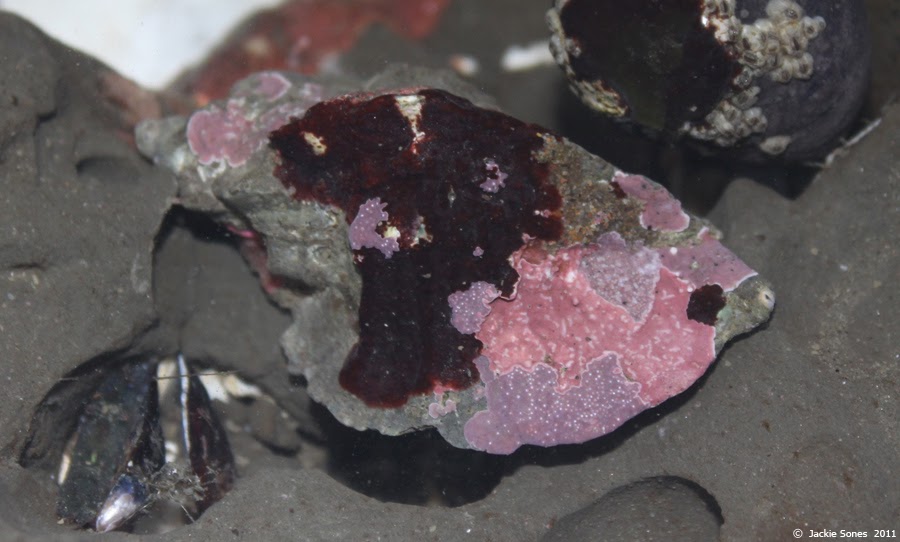I'll zoom out so you can see more of these objects:
These are snail egg capsules. Here's another view where the lighting reveals some of the developing embryos inside. Each capsule may contain between 30-80 embryos. It will take 4 months (!) for the embryos to develop and then they'll hatch out as tiny juvenile snails.
We found these egg capsules washed up on the beach. They were probably laid in the subtidal zone. They belong to a marine snail called a Leafy Hornmouth (Ceratostoma foliatum).
I realized I don't have any pictures of this snail from Bodega Head (they're not common here, at least in the intertidal zone). But I have a couple of photos from Duxbury Reef in Bolinas. It's not a great example because there's quite a bit crustose algae growing on the snail's shell, but I'll post it for now because it's the only one I have. And at this point I know you just can't wait to see what a Leafy Hornmouth looks like!
The view from above:
In the next image I turned the snail over and the animal has withdrawn inside the shell and the aperture is closed by the brown operculum ("trap door").
I'm curious about the shape of the Leafy Hornmouth's egg capsules. Why are they fluted? Is there an advantage to being shaped like a shoehorn or a halfpipe?






No comments:
Post a Comment